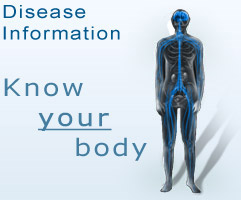Peptic Ulcers
Peptic ulcers are sores or eroded areas that occur in the stomach (gastric ulcer) or in the duodenum (duodenal ulcer), which is the upper region of the small intestine. The two common causes of peptic ulcers are infection with a specific bacterium (Helicobacter pylori) and use of non-steroidal anti-inflammatory medications.
Most ulcers heal while others worsen over time. Complications of peptic ulcers can be serious. Fortunately, most people who develop peptic ulcers can be treated successfully and avoid long-term problems.
How do ulcers develop?
The stomach and duodenal lining have ways that help prevent ulcers from developing, including the following:
- A coating of mucous protects the stomach lining from the effects of digestive acids.
- Food and other substances in the stomach neutralise acid. Certain chemicals produced by the stomach protect the cells lining the stomach.
If the mucous layer is damaged or if acid-neutralising substances are not present in normal amounts, digestive juices may cause irritation and breakdown of the stomach or duodenal lining, allowing an ulcer to form.
Symptoms
People with peptic ulcers may have many different symptoms, or may have no symptoms at all. Rarely, one could develop potentially life-threatening complications such as bleeding or perforation (tearing).
Signs and symptoms of ulcers may include:
- pain or discomfort (usually in the upper abdomen)
- bloating
- an early sense of fullness with eating
- lack of appetite
- nausea
- vomiting
- bleeding
- black stools.
Bleeding may be detected with a haemoccult test or stool card, which uses chemicals to detect small amounts of blood in the stool. Moderate to severe bleeding may cause foul-smelling black or tarry stools. Bleeding may also cause a low red blood cell count (anaemia).
Many of these symptoms may even occur in people who do not have an ulcer. For this reason, anyone who has one or more of these symptoms should discuss their concerns with their doctor to determine if further testing or treatment is needed.
Causes
The two most common causes of peptic ulcers are:
Helicobacter pylori
This bacterium is frequently found in the stomach and is now recognised to be an important cause of gastric and duodenal ulcers. It disrupts the mucous layer and causes the release of certain enzymes and toxins that may directly or indirectly injure the cells of the stomach or duodenum. The effect of these changes is that underlying tissues become more vulnerable to damage from digestive juices, such as stomach acid.
Non-steroidal anti-inflammatory drugs (NSAIDs)
NSAIDs are responsible for the majority of peptic ulcers not caused by helicobacter pylori. A number of NSAIDs are available in both prescription and over-the-counter medications, including aspirin, ibuprofen, naproxen, diclofenac and others. The risk of developing an ulcer depends upon the specific type of NSAID, the dose and duration of use, and individual factors. A few other drugs increase the risk of developing an ulcer.
Other contributing factors
- Genetic and environmental factors: For example, people with duodenal ulcers are more likely to have family members with duodenal ulcers compared to the general population. Certain medications may also influence the course of peptic ulcer disease.
- Tobacco (cigarette smoking: Another risk factor for developing an ulcer is use of tobacco; smoking increases acid secretion and therefore increases severity of ulcers, as well as the impairment/ prevention of healing.
- Alcohol abuse: interferes with ulcer healing.
- Psychological stress and dietary factors: these were once thought to be the cause of ulcers but are no longer considered to have a major role.
Rare causes of peptic ulcers
In unusual cases, conditions other than Helicobacter pylori infection or NSAIDs use may be associated with peptic ulcers. As an example, in a condition known as Zollinger-Ellison syndrome, a tumour in the pancreas stimulates gastric acid production. Increased levels of gastric acid may lead to severe and usually recurrent peptic ulcers.
Peptic ulcers of the stomach or duodenum may also be associated with certain viral infections, radiation therapy to the abdominal region, and treatment with certain anti-cancer drugs or other factors.
Diagnosis
Not everyone with ulcer presents with symptoms. Similar symptoms may also be caused by a wide variety of conditions, such as functional dyspepsia (i.e. the presence of ulcer symptoms without a specific cause), abnormal emptying of the stomach, acid reflux, gallbladder problems and, much less commonly, stomach cancer. Thus, the process needed to diagnose an ulcer depends upon the person's medical history and sometimes, use of specific diagnostic tests.
Helicobacter pylori testing
Many people with ulcer symptoms are tested for helicobacter pylori with a blood, breath or stool test. Those who test positive for helicobacter pylori are treated for the infection and ideally re-tested after treatment, to ensure that the infection has been cured. However, some doctors may recommend further testing only if symptoms recur.
Gastroscopy
People, who have certain ‘alarm' features, such as weight loss, difficulty swallowing or anaemia, particularly if the person is older, typically undergo more specific tests to better define the cause. The most common test is a gastroscopy, in which a small flexible tube with a camera is passed through the mouth to examine the lining of the stomach and the duodenum.
Complications
Peptic ulcers can heal spontaneously and may come and go. They can also be associated with serious complications, sometimes without warning signs. This is most common in elderly patients and those who take NSAIDs. The most common complications of ulcers are bleeding and perforation.
Bleeding
Bleeding can be gradual or abrupt; abrupt bleeding often causes black, tarry and loose stools, and a drop in blood pressure. Most ulcer bleeding can be controlled with endoscopy (internal visual examination), which allows a physician to cauterise the ulcer (using heat) or inject it with adrenalin to stop the bleeding. Only about 2 - 5% of people with a peptic ulcer require surgery.
Perforation
Perforation is the medical term for a puncture of the stomach lining or duodenum caused by the ulcer. Perforation can cause sudden severe abdominal pain and usually requires surgery.
Treatment
Most ulcers can be healed with medication. Surgery is rarely needed, except when complications have developed.
Identify the cause of the ulcer
The initial step in treating an ulcer is to identify the cause and to reduce the effect of the cause.
Treating Helicobacter pylori
No single drug effectively cures Helicobacter pylori infection. Treatment involves taking several medications for seven to 14 days.
Medication
- Most of the treatment regimens include a medication called a proton pump inhibitor. This medication decreases the stomach's production of acid, which allows the tissues damaged by the infection to heal. Examples of proton pump inhibitors include lansoprazole, omeprazole and pantoprazole. Some of this class of drugs is available in generic form (sold under non-branded names).
- Two antibiotics are generally recommended; this reduces the risk of treatment failure and antibiotic resistance.
- These medication methods successfully cure infection in up to 90% of people. For the treatment to be effective, the entire course of medication must be taken.
Side effects
Up to 50% of people have side effects of Helicobacter pylori treatment. Side effects are usually mild, with fewer than 10% of patients stopping treatment because of side effects.
For those who do experience side effects, it may be possible to make adjustments in the dose or timing of medication.
- Some of the treatment regimens use a medication called metronidazole orclarithromycin. These medications can cause a metallic taste in the mouth. It must not be taken with alcohol. The combination can cause skin flushing, headache, nausea, vomiting, sweating and a rapid heart rate.
- Bismuth, which is contained in some of the treatments, causes the stool to become black and may cause constipation.
- Many of the regimens cause diarrhoea and stomach cramps.
Ways to help ulcers heal
A number of other measures help to ensure ulcer healing and prevent ulcer recurrence.
- Smoking should be discontinued.
- NSAIDs should be avoided if possible.
- People who have complications from their ulcer (such as bleeding or perforation) should be re-tested for Helicobacter pylori to make sure that antibiotic therapy was successful.
- Antacids (medication that neutralises stomach acid) are permissible during ulcer treatment if needed, although they should not be used within one hour before or two hours after taking ulcer medications since they can interfere with their absorption.
- We recommend avoiding alcohol until the ulcer has had time to heal.
- Efforts to reduce stress can benefit a person's overall health and may have a small benefit in healing ulcers.
- Herbal medications and supplements (such as liquorice, marshmallow and glutamine) have no role in the treatment of peptic ulcers.
Follow-up testing
Duodenal ulcers
People with uncomplicated duodenal ulcers should have follow-up testing after treatment, especially if symptoms re-appear or do not improve. Follow-up testing is also recommended for people who have had complications (such as bleeding or perforation) to ensure that Helicobacter pylori has been successfully cured.
Gastric ulcers
People with gastric ulcers usually undergo a repeat endoscopy to ensure that the ulcer has healed and to ensure that the ulcer does not contain cancer cells. Long-term treatment to suppress stomach acid is usually recommended if a person has a high risk of ulcer recurrence (e.g. a history of ulcer complications or frequent recurrences).
Helicobacter pylori
People with ulcers due to Helicobacter pylori are unlikely to develop another ulcer if NSAIDs are avoided.
References
http://www.uptodate.com/home/index.html
 TransmedBanner4.jpg)

